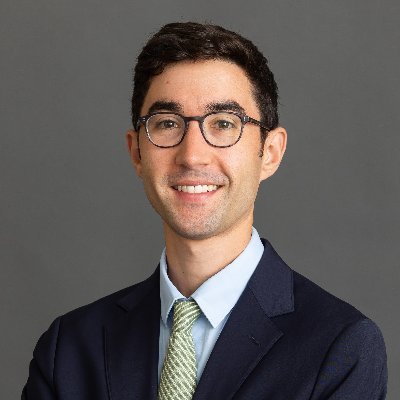
Kevin Tobia
@kevin_tobia
Followers
1,967
Following
1,382
Media
15
Statuses
85
find me at: @kevintobia .bsky.social
Joined September 2017
Don't wanna be here?
Send us removal request.
Explore trending content on Musk Viewer
Last Seen Profiles
Brilliant piece on "administrative enslavement" by
@adamsonofdavid
Quote from the conclusion...
10
4
20
@_jlnunes
@MtthsBrnkmnn
@alma_diamond
we really need some comparative follow-up studies!
@EbrightYon
@MtthsBrnkmnn
0
0
6
@MtthsBrnkmnn
@alma_diamond
Thanks! I’m not sure I’m following: are you saying that in your experience, German *law* faculty are largely anti-positivist? If so, that’s the opposite of the finding here about American law faculty
5
0
4
@brian_wolfman
yes, the philosophers are more evenly divided between positivism and non-positivism
1
0
2
@fjimenez_c
The Bourget and Chalmers survey asks about moral realism—fwiw more philosophers endorse realism than nonpositivism, but I agree with your prediction that these answers are correlated
2
0
2
@brian_wolfman
So I agree with your suggestion: the difference has something to do with US legal training and experience (and/or the training and experience of philosophers)
0
0
0
@brianlfrye
thanks brian! is the thought that "natural law" calls to mind conservative legal theory, which pushes (largely non-conservative) participants to the other option?
1
0
1
@GlexAreen
@brianlfrye
I also wonder whether a lot of current US law profs associate "natural law" with Dworkin -- which would not have the religious or conservative associations. But I don't have data to back up that hunch
1
0
1
@brian_wolfman
Something interesting suggested by several replies: this pattern may not be the same in other countries.
I also don’t think this is primarily a selection effect in the US (e.g. positivists drawn to law school)
1
0
1
@GlexAreen
@brianlfrye
thanks Alex, glad you share these thoughts. By "the results" I take you to mean the comparison of these two questions across different studies...
2
0
1
@EbrightYon
The law prof survey is US. The philosopher one is international, but when you filter it to be
US-only, the positivism results are similar (37%)
1
0
1






































